Interpreting The Parables (Revised)
$46.99
Abbreviations
Preface
1. Introduction
1.1 The Previous Scholarly Consensus
1.2 The Sizable Minority Report
1.3 Newest Developments
1.4 The Scope And Outline Of This Book
Part One: Methods & Controversies In Interpreting The Parables
2. Parable & Allegory
2.1 The Current Debate: Two Main Approaches
2.1.1 Parable Vs. Allegory
2.1.2 Parable As Allegory
2.2 Evaluating The Debate
2.2.1 Contemporary Literary Criticism
2.2.2 The Rabbinic Parables
2.3 Conclusions
3. Form Criticism & The Parables
3.1 Classical Form Criticism
3.1.1 The Method
3.1.2 Critique
3.2 Hypotheses Of The Guarded Tradition
3.2.1 Memorizing Jesus Teachings
3.2.2 New Insights Into Oral Folklore And Social Memory
3.3 Conclusions
4. Redaction Criticism Of The Parables
4.1 Positive Contributions
4.1.1 The Illustration Of Distinctive Themes
4.1.2 The Significance Of The Larger Contexts
4.2 Invalid Allegations
4.2.1 Misleading Parallels
4.2.2 Dictional Analysis
4.2.3 The Theology-History Dichotomy
4.2.4 Prophecy After The Event
4.2.5 Characterizing The Parables In Different Synoptic Sources
4.2.6 Mistaking Stylistic For Theological Redaction
4.2.7 Misrepresenting The Theology Of An Evangelist
4.3 Conclusions
5. New Literary & Hermeneutical Methods
5.1 The New Hermeneutic
5.1.1 The New View Of Metaphor
5.1.2 A Critique Of The New View Of Metaphor
5.2 Structuralism
5.2.1 The Ideology
5.2.2 The Method
5.2.3 Surface Structures
5.3 Poststructuralism/Postmodernism
5.3.1 Deconstruction
5.3.2 Reader-Response Criticism
5.4 Other Literary Approaches [au: FYI, Edited To Match Text.]
5.5 Conclusions
Conclusions To Part One
Part Two: The Meaning & Significance Of Individual Parables
6. Simple Three-Point Parables
6.1 The Prodigal Son (Lk 15:11-32)
6.2 The Lost Sheep And Lost Coin (Lk 15:4-10; Cf. Mt 18:12-14)
6.3 The Two Debtors (Lk 7:41-43)
6.4 The Two Sons (Mt 21:28-32)
6.5 Faithful And Unfaithful Servants (Lk 12:42-48; Mt 24:45-51)
6.6 The Ten Virgins (Mt 25:1-13; Cf. Lk 13:24-30)
6.7 The Wheat And The Tares (Mt 13:24-30, 36-43)
6.8 The Dragnet (Mt 13:47-50)
6.9 The Rich Man And Lazarus (Lk 16:19-31)
6.10 The Children In The Marketplace (Mt 11:16-19; Lk 7:31-35)
6.11 Conclusions
7. Complex Three-Point Parables
7.1 The Talents (Mt 25:14-30; Cf. Lk 19:12-27)
7.2 The Laborers In The Vineyard (Mt 20:1-16)
7.3 The Sower (Mk 4:3-9, 13-20 Pars.)
7.4 The Good Samarita
Additional Info
In the last century, more studies of the parables were produced than for any other section of comparable length in the Bible. The problem is that few students of the Bible have access to these studies. In this substantially new and expanded edition, Craig Blomberg surveys and evaluates the contemporary critical approaches to the parables–including those that have emerged in the twenty years since the first edition was published. The classic works of C. H. Dodd and Joachim Jeremias set the direction for nearly all further parable studies in this century. Embodied in both scholars’ approaches are at least two assumptions that, for the most part, have gone unchallenged: (1) Parables make one and only one main point. (2) Parables are not allegories. But can these assumptions be supported by the evidence? Challenging this view and making his own important new contribution to parable studies, Blomberg argues that within proper definitions and limits, the parables are in fact best seen as allegories. In support of this “minority report” concerning parable interpretation, Blomberg not only sets forth theoretical considerations but devotes attention to all the major parables, providing brief interpretations that highlight the insights to be gained from his distinctive method.
in stock within 3-5 days of online purchase
SKU (ISBN): 9780830839674
ISBN10: 0830839674
Craig Blomberg
Binding: Trade Paper
Published: September 2012
Publisher: InterVarsity Press
Print On Demand Product
Related products
-
Weight Of Glory
$16.99Selected from sermons delivered by C. S. Lewis during World War II, these nine addresses show the beloved author and theologian bringing hope and courage in a time of great doubt. “The Weight of Glory,” considered by many to be Lewis’s finest sermon of all, is an incomparable explication of virtue, goodness, desire, and glory. Also included are “Transposition,” “On Forgiveness,” “Why I Am Not a Pacifist,” and “Learning in War-Time,” in which Lewis presents his compassionate vision of Christianity in language that is both lucid and compelling.
Add to cartin stock within 3-5 days of online purchase
-
Screwtape Letters
$17.99Wormwood, a demon apprentice, must secure the damnation of a young man who’s just become a Christian. He seeks the advice of an experienced devil, his uncle Screwtape. Their correspondence offers invaluable—and often humorous—insights on temptation, pride, and the ultimate victory of faith over evil forces. Paperback with French flaps and deckled page edges.
Add to cartin stock within 3-5 days of online purchase
-
Drawing Pad : Available From Anchor
$4.99Games and Toys
Additional Info
This generously sized drawing pad provides a clean sheet for every creative whim. Premium white bond paper is ideal for pencils, crayons, markers, chalk, watercolor or poster paints.Add to cartin stock within 3-5 days of online purchase
-
Life Lessons From John (Student/Study Guide)
$14.99The Max Lucado Life Lessons series continues to be one of the bestselling study guide series on the market today. This updated edition of the popular New Testament and Old Testament series will offer readers a complete selection of studies by Max Lucado. Intriguing questions, inspirational storytelling, and profound reflections will bring God’s Word to life for both individuals and small-group members. Each session now includes a key passage of Scripture from both the NIV (formerly NCV) and the NKJV, and the guides have been updated to include content from Max’s recent releases (2007-2016).
Add to cartin stock within 3-5 days of online purchase

 Caregiving With Grit And Grace
Caregiving With Grit And Grace
 Dont Look Back
Dont Look Back
 When Children Experience Trauma
When Children Experience Trauma
 Record Keeper
Record Keeper
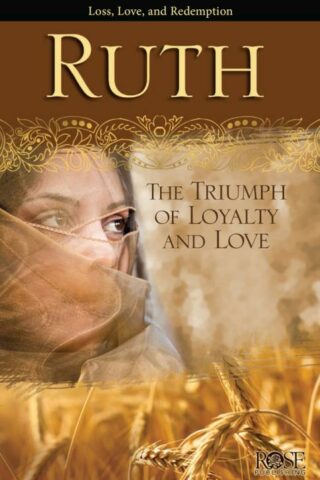 Ruth Pamphlet
Ruth Pamphlet
 Mas Dulce Que La Miel - (Spanish)
Mas Dulce Que La Miel - (Spanish)
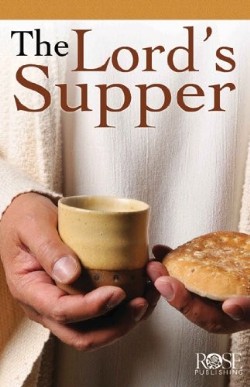 Lords Supper Pamphlet
Lords Supper Pamphlet
 Adventure Bible
Adventure Bible
 Large Print Premium Value Thinline Bible Filament Enabled Edition
Large Print Premium Value Thinline Bible Filament Enabled Edition
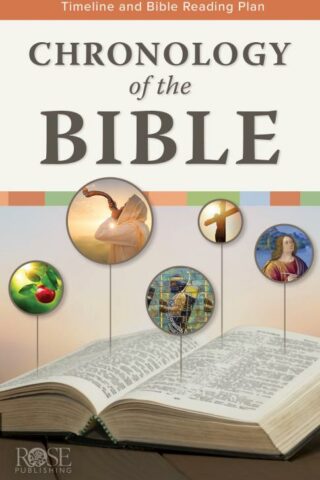 Chronology Of The Bible Pamphlet
Chronology Of The Bible Pamphlet
 Color Code Study Bible
Color Code Study Bible
 Spiritual Abuse : Religion At Its Worst
Spiritual Abuse : Religion At Its Worst
 Land Of Dreams
Land Of Dreams
 When Hope Calls Season 1 (DVD)
When Hope Calls Season 1 (DVD)
 Bark Of The Bog Owl
Bark Of The Bog Owl
 Gods Promises For Your Every Need NKJV
Gods Promises For Your Every Need NKJV
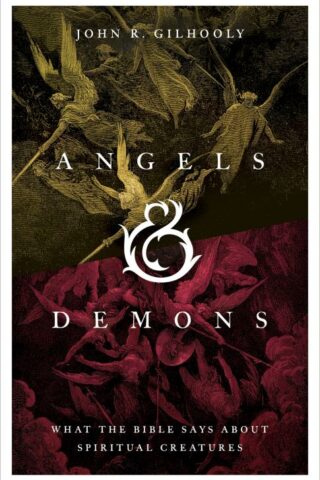 Angels And Demons
Angels And Demons
 Luke In The Land Bible Study Book With Video Access (Student/Study Guide)
Luke In The Land Bible Study Book With Video Access (Student/Study Guide)
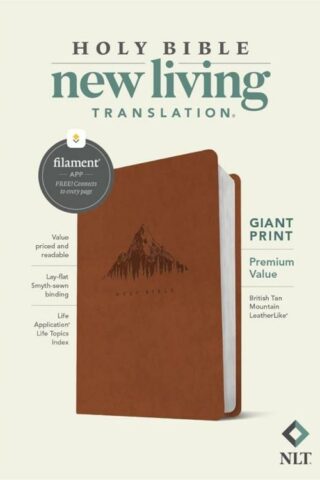 Giant Print Premium Value Bible Filament Enabled Edition
Giant Print Premium Value Bible Filament Enabled Edition
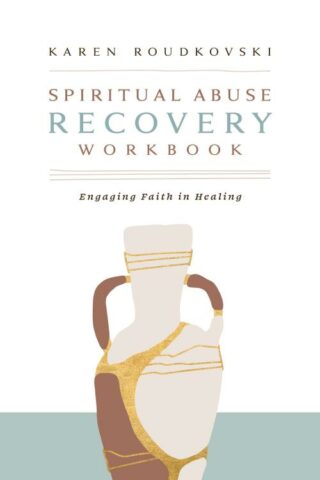 Spiritual Abuse Recovery Workbook (Workbook)
Spiritual Abuse Recovery Workbook (Workbook)
 Simplified Cookbook : Delicious Meals With Effortless Prep
Simplified Cookbook : Delicious Meals With Effortless Prep
 Sheet Music : Uncovering The Secrets Of Sexual Intimacy In Marriage
Sheet Music : Uncovering The Secrets Of Sexual Intimacy In Marriage
 Leaving Military Service
Leaving Military Service
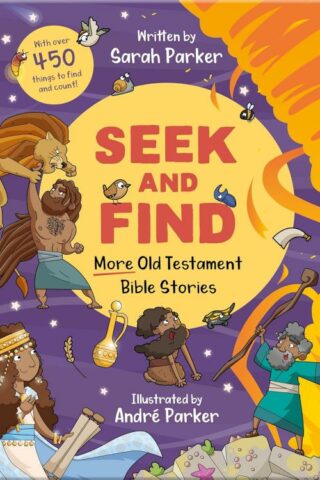 Seek And Find More Old Testament Bible Stories
Seek And Find More Old Testament Bible Stories
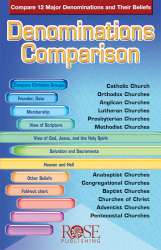 Denominations Comparison Pamphlet
Denominations Comparison Pamphlet
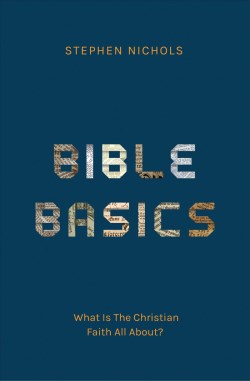 Bible Basics : What Is The Christian Faith All About
Bible Basics : What Is The Christian Faith All About
 Confia En Dios Con Cada Alient - (Spanish)
Confia En Dios Con Cada Alient - (Spanish)
 Love Has A Story
Love Has A Story
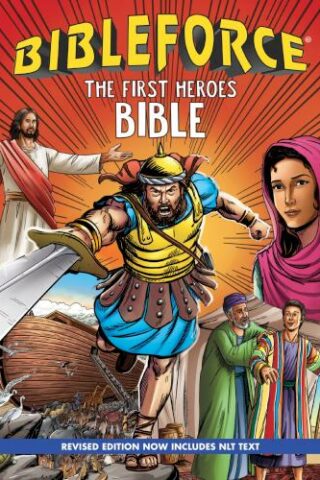 BibleForce : The First Heroes Bible - Revised Edition Now Includes NLT Text (Rev
BibleForce : The First Heroes Bible - Revised Edition Now Includes NLT Text (Rev
 Shaken : Discovering Your True Identity In The Midst Of Lifes Storms
Shaken : Discovering Your True Identity In The Midst Of Lifes Storms
 Blind : The True Story Of The Robertson Family (DVD)
Blind : The True Story Of The Robertson Family (DVD)
 Compact Giant Print Bible Filament Enabled Edition
Compact Giant Print Bible Filament Enabled Edition
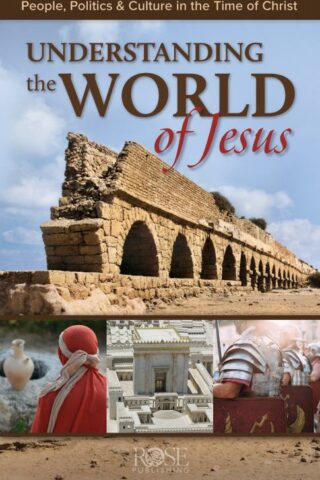

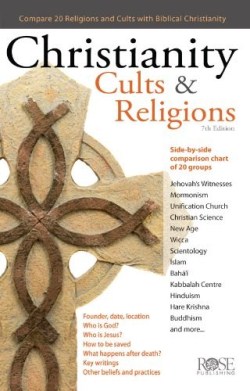
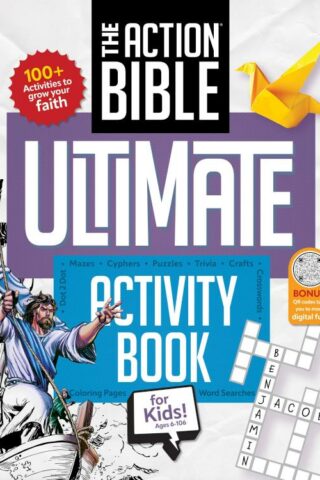

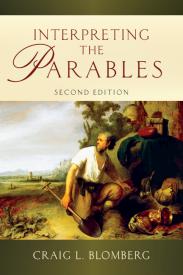
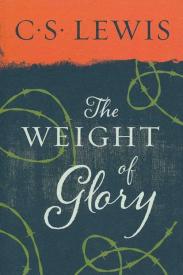


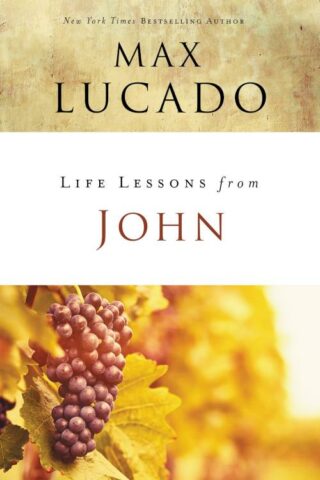

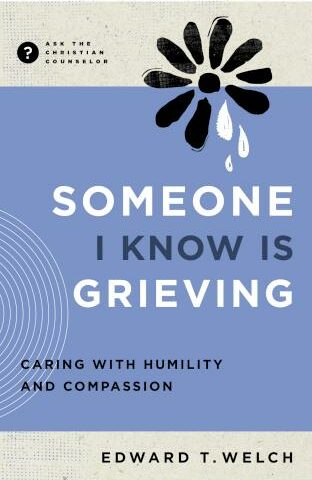

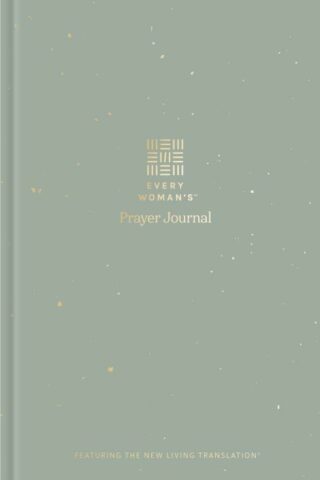

Reviews
There are no reviews yet.